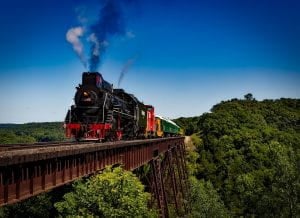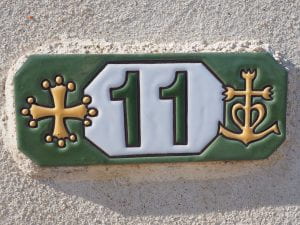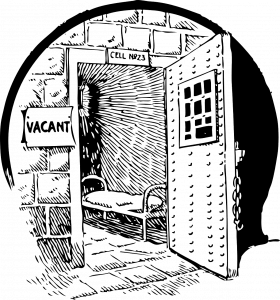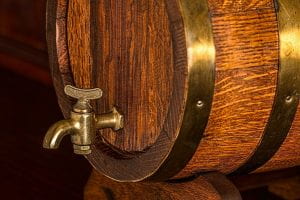As a lot of Aussie and NZ research relates to our ancestors from England, Scotland, Ireland and Wales, a great database to use is Find My Past. But there are also lots of Aussie/NZ records on the database.

What Australian and NZ records have you found helpful on Find My Past?
Reasons why I like the site, + ways in which it’s better than the opposition: bit.ly/2Hxp1Ad. I’ve had a subscription for over 10yrs & I use it constantly.
Ooh so many records to choose from. I probably have found the electoral rolls the most useful (our Census substitute) but there are lots of others e.g. school records and railway records. Check out QFHS datasets on FMP here findmypast.com.au/content/about-…
Being busy at work my FMP membership lapsed so have to use library versions when I need it. Checked my saved images and winners are AUS and NZ results are passenger records.
When using FMP I found it useful to help locate NZ BDM information or Electoral Rolls. From what I remember they have a large variety of the less usual databases / lists so a check of the catalogue confirmed this. Thinking I better join up again.
Haven’t used @findmypast very much but now I have dad’s family there from early 20th century, I will certainly look at their records more carefully.
I have found FMP invaluable for both Australian and NZ research – Birth, death, marriage, Qld Schools, NSW Govt Gazettes, Wills, Military Records, Convicts, Pioneer records and more.
I’ve had a FMP subscription for ages but haven’t used it as much as I could have until recently. I’ve found a huge amount of information there. Electoral rolls and QFHS records
I have tended to use FMP more for English research until recently Jennifer but I have been exploring the Australia/ NZ records more recently. Having a tree on FMP helps and hints are fairly accurate
Sometimes a bit freaky when you get an email saying ” we know you were searching for Mr X, you might be interested in this” LOL
It just means that the records come to you so to speak via hints which I find more accurate than on other sites
I get those all the time after I have found a record on the 1881 Census, usually one of the other Census records. Their cookies must be rather good.
I haven’t yet had a sub to FindMyPast. I use it mainly for the 1881 Census (which is free) for my @WikiTreers profiles. Once I finish my projects, I plan to take a sub for a time to see what I find.
I have been a bit more focused on UK records on FMP lately but am interested to hear what others have found useful for Aus and NZ
The birth, marriage and death indexes are great, plus the electoral rolls and military records – these are my go-to record sets. The sheep returns are another fab resource, and @findmypast has a few more than Ancestry. Pays to check who has what.
I haven’t seen the sheep returns Maggie but with quite a few sheep farmers in NZ in the past (South Island) I will now have a look
For NZ records I use BDM Online, Ancestry for Electoral Rolls, Wilson Collection, Papers Past, Archway, etc. I don’t know what they have that I can’t access elsewhere.
I spent all weekend diving into FMP They have many more records than I realised and some more unusual records. I found lots of information I hadn’t previously come across
Queensland Licences, Qld Land Records and Qld Early Pioneers has been really helpful for my Qld research
I’ve just discovered a Queenslander in the family. He bought up many pastoral leases so I’ve been looking into FMP land records. So much info there
I sometimes find if you cannot find something another site might help. Especially when indexing/ transcription errors have occurred. With electoral rolls different sites index different dates and other years are image view only so multiple sites can help.
I just dial up the Electoral Rolls and go looking. Amazing who I find. I am looking at the originals, so no transcription errors.
There’s a few niche record sets there, good to have a look through.
FMP has 340 AUS and NZ record sets. findmypast.com.au/search/histori…
I have found the Queensland school pupil indexes really helpful in tracing families that moved around
I discovered my grandparents knew each other as young children through Qld school records
Cemetery transcriptions on FMP are a bonus!
More SA records on FMP than the others, in particular I like the search for the electoral rolls and SA Govt Gazettes, also has emigrants applying for free passage to SA not available elsewhere
I’ve found convict/prisoner records on FMP helpful. It’s always good to remember that convict admin made multiple copies of prison, court, shipping records. Look at them all. There are slight differences ie more information.
I think the first time I used FMP I found the 1928 passenger list for my grandmother’s migration to Australia.
I discovered NZ jury records on FMP this weekend past. I found the NZ Women’s Suffrage records fascinating.

Do you have a family tree on Find My Past? Are the hints useful and accurate?
Helen Smith has written a great article on using @findmypast for Australian research: findmypast.com.au/blog/family-re…
No I don’t. I mainly use it for searching
Yes but only a teeny weeny one. Because it is so tiny and the info so thin there aren’t many hints. I need to work on this area. Sigh. So many trees to maintain…..
That is the problem isn’t it Alex. I tend to update more my Ancestry tree then if it gets much larger than the FMP tree and I don’t have time to tend to those and family Tree Maker
No, too much else on my to-do list which I want to finish this year (not only genealogy). Then I hope to do so
I have a tree on FMP and so far the hints I get are really accurate. I like how they put the % of accuracy and you can start with those that are most accurate.
Not really, but I accessed FMP for free thru my local library for last 18 months (thanks covid) & find the search results much easier to scan than Ancestry. Miss it. Time to take out my own sub
Yes I have an old tree. Never had problems with the hints that I can remember although I try to focus on what I am researching and often leave hints.
I have several trees on Findmypast. This weekend I uploaded my Living DNA results to FMP as well
I have found the hints on Findmypast to be far more accurate than on other sites. But a tedious process saving them
Yes, I have 2 trees on FMP. Generally the hints are fairly accurate (not always) except in the case of hints from other people’s tree which can be ‘hit and miss’
I have a couple of family trees on Findmypast – at the moment they’re mostly for fishing on brickwalls, and the hints have generally pretty good. I need to build the trees up more to take better advantage.
Passing on to our England & Wales Interest Group that are talking about the 1921 Census tomorrow. With regard charges of £2.50 for every record transcript and £3.50 for every original record image. Does this mean if you want both it is £6?
Feeling a right geneabunny at the moment. I uploaded a tree to FMP in March of this year and completely forgot about it. Just looked and there are hints and hints and hints
I have just realised you can filter your hints so you only get census or BDM – makes it easier to add to just one person
I find it time-consuming to go through them, but occasionally there are hidden gems! I don’t mind them, just ignore till I have time to review them
I have family trees on FMP – I like the idea of fishing in all ponds and hence FMP is not necessarily as my starting point but it is an essential element and I like all the record sets on FMP – I’ve been learning about Scottish records in particular this year
Fishing in all the ponds is a good idea. I think that’s why I added my tree to FMP. Just don’t know why I completely forgot about it,
I like searching across as many sites as possible when I can’t find someone. Found my 3x ggrandfather in 1841 census on FamilySearch, not on the other sites.

Which other countries on FMP are especially useful when researching? Why? What is unique to FMP?
Tbh my research is very UK focussed so I’d probably use English and Welsh records the most. Census and bdm records would be my focus. I think the 1939 Register is unique to FMP yes?
They had it first, but now available on Ancestry as well. FMP have the address search which is very useful.
I have found FMP very useful for most of my ancestors as many come from Essex, London and Cornwall. From memory Census and BDM for these areas are good.
Ireland is my other country apart from Australia. Occasionally England and I like the digitised newspapers.
Thinking that the British Newspaper collection means I do need to rejoin. I never seem to have time to get to the library.
I LOVE the English records on Findmypast. They are wonderful. Image quality for census records is superior too in my opinion and fewer transcription errors
Over the last few months I have been all over those Catholic registers – Diocese of Southwark, and Scotland. Such a huge help in tackling some brickwalls, absolutely love love love them!
Plus great for Irish records, and the British newspaper collection.
I have also used the 1939 register to trace descendants from common ancestors in England to sort out DNA matches. That has been most useful.
I find 1939 useful for this purpose also. Having a household, even if they are hidden does help.
I use for English #FamilyHistory research a lot. Sometimes for US records too but limited compared to Ancestry
I think the other records on FMP would be more useful so the newspapers is a bonus. I just worry I am missing out on learning about their lives by sticking to BDM, dry facts and dates.
The 1939 Register on FMP has my g uncle listed as Rex Hoyes correctly while Ancestry has him transcribed as Rose Hayes. transcription is important for finding things
One of my best Irish newspaper finds was the death notice for my GGG grandfather Robert Fagan. It also said American papers please copy. Explains some of those DNA matches

What functionality on the Findmypast website have you found helpful when researching? What would be on your wishlist for the future?
I like the advanced searching where you can list another person’s name in the census. Useful for common name families.
hmmm I suspect it is easier to do a broader search on census documents on FMP rather than Ancestry i.e. I think you can search by address rather than just name but I may be barking up the wrong tree here.
I seem to remember that when you searched I documents you had already reviewed were marked. It saves rechecking the same record. If this is not available then it is the improvement I would like to see. Icons for downloaded and attached to a person.
I have FMP open and there are features I haven’t used or didn’t know were there. I tend to be focused on searching and have not been using FMP as effectively as I could. #ANZAncestryTime More on the to do list!
I think that because we have used the archives and local FHS here in Australia we tend to forget about online records Shauna
I love the address search on the censuses and the 1939 register. Also that every search field is optional – was great to search on just occupation when I was looking for a missing jeweller!
For house history research the address search on the censuses is invaluable #ANZAncestryTime (taking into consideration that street numbers can change)

Great comments:
Worth signing up to Findmypast’s newsletter – they always publish new or updated record sets on Fridays. Sometimes there’ll be nothing applicable to your family research, but sometimes there is!
I find these types of updates useful for my society FB posts. It means I can quickly see new AUS or NZ records.
Thanks for this great discussion about FMP tonight. I’ve learnt lots and am looking forward to trying out all your hints and tips into action
Readers: Have you used FindMyPast for your Aussie or New Zealand research? Did you find something unusual?




